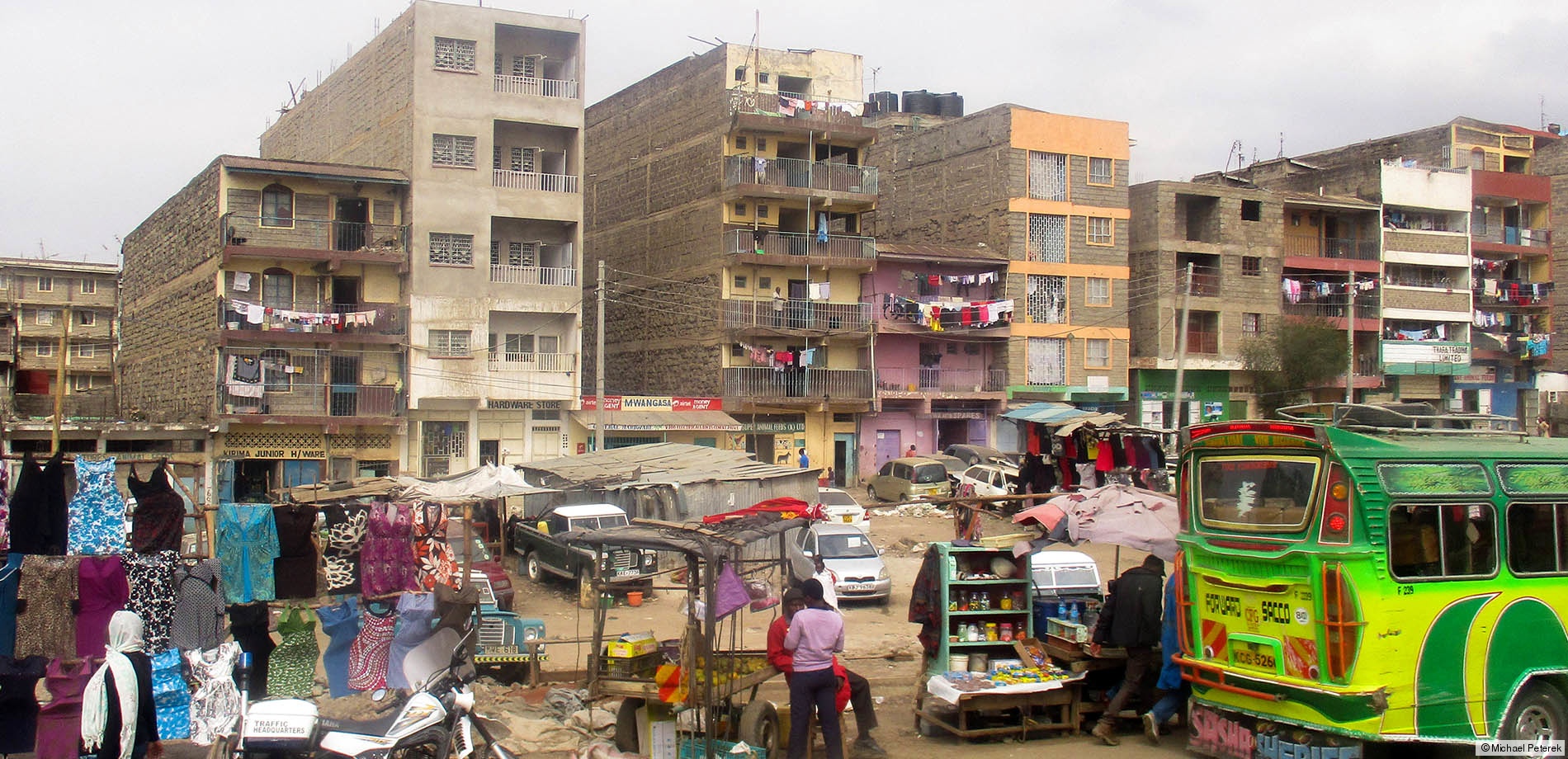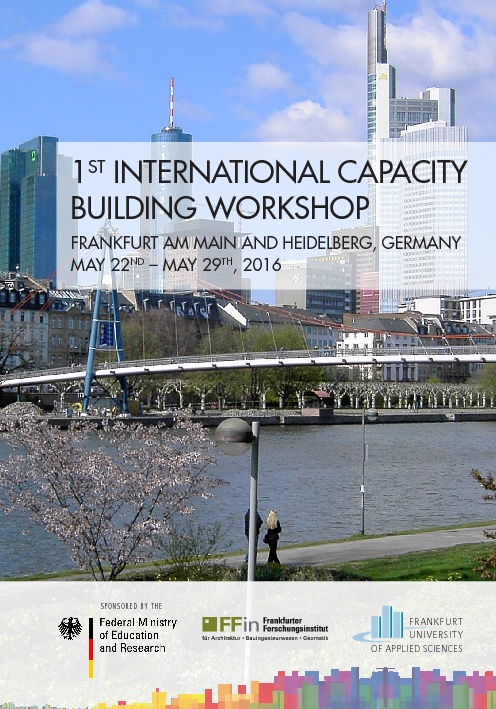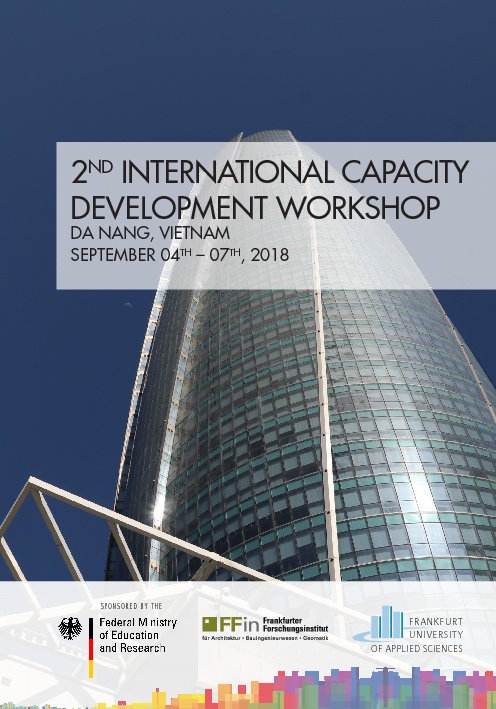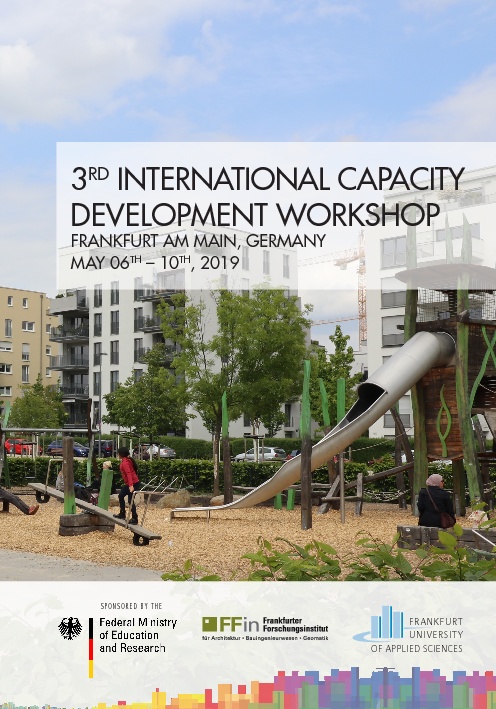Rapid Planning
Rapid Planning (RP) is an action-oriented research project that has been developed under the umbrella of the Future Megacities Research Program of the German Federal Ministry for Education and Research (BMBF) from 2014 to 2020. Rapid Planning seeks to develop a rapid trans-sectoral urban planning methodology with a focus on urban basic services infrastructure, specifically targeting supply and disposal infrastructure. The service sectors covered by the project include energy, water, waste water, solid waste, and urban agriculture.
Rapid Planning has been sponsored by the German Federal Ministry for Education and Research (BMBF).
Results and deliverables by Frankfurt UAS
Frankfurt UAS has been the responsible local project partner (“Focal Point”) for the integration and relation with the German reference city Frankfurt am Main. Frankfurt UAS has been involved in the integration of the RP methodology into spatial and urban planning procedures in the case cities, in the analyses of the different municipal administrative and planning structures, and has been the leader of “capacity building/training units” work package, including the organization of capacity development workshop for the international partners in Germany and in Vietnam. Additionally, it has had its share in the dissemination and valorization of the results.
Results for work package 7
In this work package for integrating the Rapid Planning methodology into spatial planning and urban planning procedures, the following documents are available:
Deliverable – D 7
Review of the Urban Development in Frankfurt am Main and the Lessons Learned for Trans-sectoral Planning
This document revolves around five major topics. The first discusses the spatial planning system, procedures, and instruments utilized by the planning authority in the city of Frankfurt am Main. Therefore, a description of the institutional structure as well as of the development plans, measures and by-laws of the city becomes necessary in order to understand the formal framework steering urban development of the city. The second handles the city dynamics, urban development trends along with the goals and vision of the city. The goal is to understand the drivers as well as the challenges of city planning and infrastructure development. The third discusses the tensions between urban development and city planning in Frankfurt identifying the gaps between the planning procedures and the future vision. Based on the established understanding, the fourth summarizes the lessons learned from the research experiences and activities in the city. And, the last proposes a set of recommendations.
The complete document can be found here.
Deliverable – D 7.1/7.2
Documentation and Review of Spatial Planning Systems and Urban Development Goals in Assiut, Egypt
This document discusses the topic of urban development and city planning of Assiut in its general terms. This includes the presentation of the administrative system of spatial planning, the city’s dynamics, trends, tensions as well as urban development goals and visions of the future development.
The complete document can be found here.
Scientific Article
Michael Peterek, Susana Restrepo Rico, Yaman Hebbo, Ulrike Reichhardt, Carlos Guerra Bustani (2018)
A Flexible System for Localised Sustainable Development
In: Technical Transactions, Vol. 9/2018, Kraków: Cracow University of Technology Press, pp. 33–48
The complete document can be found here.
Results for work package 10
In this work package for analyzing the projects and practices of sustainable infrastructure planning in Frankfurt am Main , the following document is available:
Deliverable – D.10
Experiences in Infrastructure Development in the Reference City Frankfurt am Main
This document examines Frankfurt am Main, Germany, as a reference city for studying the planning and implementation processes of urban infrastructure development focused on sustainability and maintaining good quality of life. The first section of the document describes the diverse projects being implemented in the sectors of energy, water, wastewater, solid waste and urban agriculture. These projects serve as examples of environmentally-friendly urban development, as well as inter-departmental collaboration and continuity in the development of a sustainable city. This section also highlights the collaborative approach to urban infrastructure planning and management in Frankfurt. The second section of the document compiles the lessons learned from the previous analysis.
The complete document can be found here.
Scientific Article
Michael Peterek, Susana Restrepo Rico, Yaman Hebbo, Ulrike Reichhardt (2019)
Collaborative Planning for Sustainable Urban Infrastructure in Frankfurt am Main
In: Technical Transactions, Vol. 8/2019, Kraków: Cracow University of Technology Press, pp. 31–50
The complete document can be found here.
Results for work package 11
In this work package targeting capacity development within Rapid Planning, the following documents and documentation brochures of in total three international capacity development workshop (2016 in Frankfurt and Heidelberg, 2018 in Da Nang, and 2019 again in Frankfurt) are available:
Deliverable – D 11.1
An Outline for a Capacity Building File for Urban Planning Administrations. The General Component
This document presents a capacity development process for the Rapid Planning project based on the theory of strategic planning and specific concepts of capacity building and capacity development. The document is aimed at municipalities, specifically public administration institutions and planning officials. Experiences and best examples in capacity development around the worlds are also outlined at the end of the document.
The complete document can be found here.
Deliverable – D 11.14b
1st International Capacity Building Workshop in Frankfurt am Main and Heidelberg, 2016
The complete document can be found here.
Deliverable – D 11.14c
2nd International Capacity Development Workshop in Da Nang, 2018
The complete document can be found here.
Deliverable – D 11.14d
3rd International Capacity Building Workshop in Frankfurt am Main, 2019
The complete document can be found here.
Final Report
The final report of Frankfurt University of Applied Sciences from November, 2020 (in German) can be found here.




